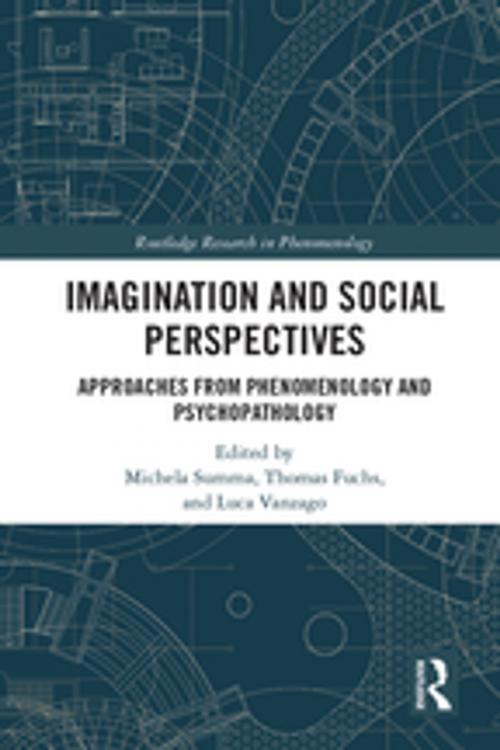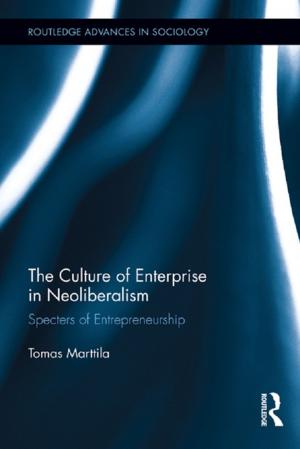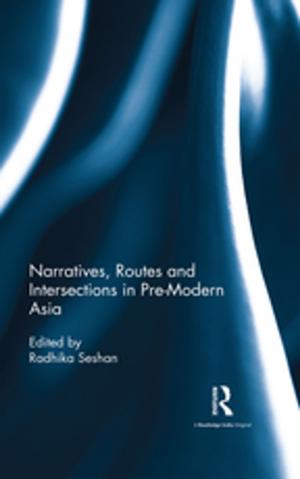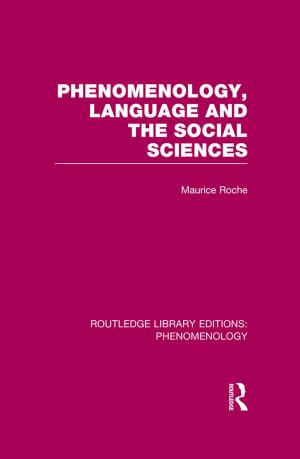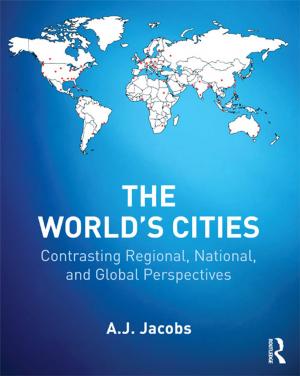Imagination and Social Perspectives
Approaches from Phenomenology and Psychopathology
Nonfiction, Religion & Spirituality, Philosophy, Phenomenology, Health & Well Being, Psychology, Pathological Psychology| Author: | ISBN: | 9781315411514 | |
| Publisher: | Taylor and Francis | Publication: | October 3, 2017 |
| Imprint: | Routledge | Language: | English |
| Author: | |
| ISBN: | 9781315411514 |
| Publisher: | Taylor and Francis |
| Publication: | October 3, 2017 |
| Imprint: | Routledge |
| Language: | English |
Our experience of other individuals as minded beings goes hand in hand with the awareness that they have a unique epistemic and emotional perspective on the experienced objects and situations. The same object can be seen from many different points of view, an event can awaken different emotional reactions in different individuals, and our position-takings can in part be mediated by our belonging to some social or cultural groups. All these phenomena can be described by referring to the metaphor of perspective. Assuming that there are different, and irreducible, perspectives we can take on the experienced world, and on others as experiencing the same world, the phenomenon of mutual understanding can consistently be understood in terms of perspectival flexibility. This edited volume investigates the different processes in which perspectival flexibility occurs in social life and particularly focuses on the constitutive role of imagination in such processes. It includes original works in philosophy and psychopathology showing how perspectival flexibility and social cognition are grounded on the interplay of direct perception and imagination.
Our experience of other individuals as minded beings goes hand in hand with the awareness that they have a unique epistemic and emotional perspective on the experienced objects and situations. The same object can be seen from many different points of view, an event can awaken different emotional reactions in different individuals, and our position-takings can in part be mediated by our belonging to some social or cultural groups. All these phenomena can be described by referring to the metaphor of perspective. Assuming that there are different, and irreducible, perspectives we can take on the experienced world, and on others as experiencing the same world, the phenomenon of mutual understanding can consistently be understood in terms of perspectival flexibility. This edited volume investigates the different processes in which perspectival flexibility occurs in social life and particularly focuses on the constitutive role of imagination in such processes. It includes original works in philosophy and psychopathology showing how perspectival flexibility and social cognition are grounded on the interplay of direct perception and imagination.
